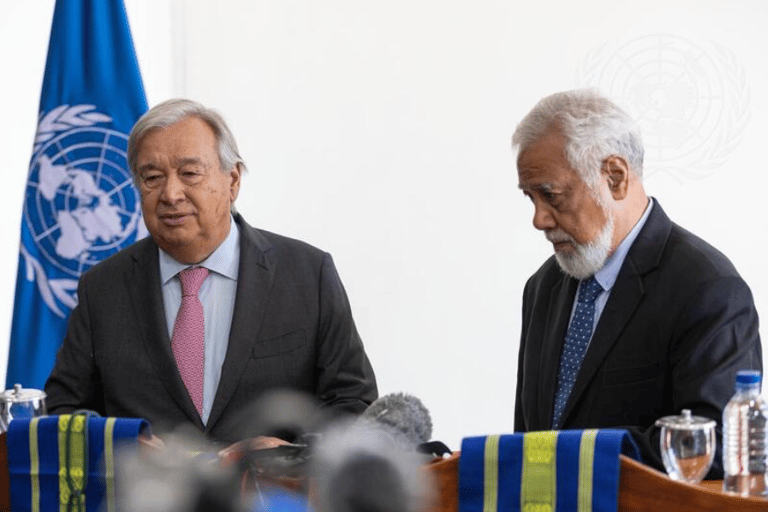Overseas Territories Clash on Sovereignty at UN
Between May 21-May 23, 2025, the United Nations hosted its annual regional seminar on decolonization in Timor-Leste. Per the UN, there are currently 17 Non-Self-Governing Territories across the globe, which are defined somewhat circularly as territories “whose people have not yet attained a full measure of self government”.
NEWS FROM THE OVERSEAS TERRITORIESBRITISH VIRGIN ISLANDSCAYMAN ISLANDSFALKLAND ISLANDSGIBRALTAR
Between May 21-May 23, 2025, the United Nations hosted its annual regional seminar on decolonization in Timor-Leste. Per the UN, there are currently 17 Non-Self-Governing Territories across the globe, which are defined somewhat circularly as territories “whose people have not yet attained a full measure of self government”. Members of government, academia, and civil society from these territories are all invited to participate in these regional seminars in the aim of eradicating colonialism on all levels. Curiously, however, all of the British Overseas Territories, bar three, were absent.
The Virgin Islands, represented by Mr. Benito Wheatley, Special Envoy of the Virgin Islands made a fiery display at the seminar, calling on the UN to pass further legislation condemning British governance in the BVI, which he described as undemocratic due to the reserve Order-in-Council which could suspend the territory’s constitution.
Wheatley attacked the ‘Modern Partnership’ rhetoric advanced by HM Government and the FCDO as farcical, and as only a mask over an insidious form of domineering neocolonialism. The strength of these claims was, nonetheless, diminished by the positions of other British Overseas Territories.
In fact, in working papers released by the conference, officials such as the Premier of the Cayman Islands were quoted as gladly welcoming constitutional advancement and a greater degree of self-determination provided to them by Britain, a far-cry from the cries of ‘coloniser!’ which seemed implicit in Mr. Wheatley’s presentation.
More than this, the Falklands, represented by Ms. Teslyn Barkman, Member of the Legislative Assembly, also made an appearance at the seminar, flatly contradicting the argument made by Mr. Wheatley: “it is we who design and ascend our laws, our policies, our finance”, she said, arguing that Overseas Territories can and do demonstrate an appropriate level of self-governance..
Moreover, Ms. Barkman argued persuasively that democracy and the status of Overseas Territory are not incompatible, recalling that in their most recent referendum 99.8% of the Falklands’ population voted in favour of remaining a British Overseas Territory.
Gibraltar echoed this sentiment, highlighting that Spain’s territorial claims over the island are a holdover from the fascist Franco period which the UN still upholds. For Gibraltar, it seems, being an overseas territory is a necessary precondition for democracy.
Despite this colonial doublethink among the British Overseas Territories, the primary focus of the conference were French, rather than British, overseas possessions. With tensions in New Caledonia between French settlers and the indigenous Kanak at an all time high (as FOTBOT has previously reported), many nations expressed their disapproval. The Russian Federation, for example, bashed both France and the U.S. in the handling of their Overseas Territories, New Caledonia and Puerto Rico, likely a tit-for-tat to counter both countries’ continued funding of Ukrainian resistance in Donetsk.
What all of this goes to show, however, is that Overseas Territories are still important pieces in the game of geopolitical chess, and that each seem to have differing positions about their place in the international system. Perhaps through greater ties between political institutions and civil society these diverging narratives can be reconciled, or maybe the colony/state dichotomy has outlived its analytical usefulness, and Overseas Territories should be seen as their own unique governance type.


